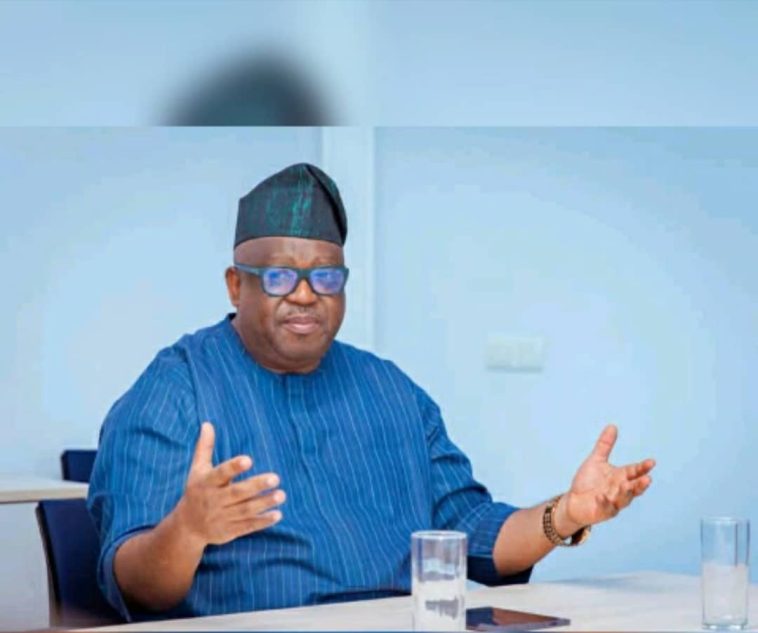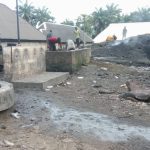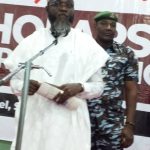By Gyang Bere
It is said that, “a house divided against itself cannot stand.” In Plateau State, a land of rich culture and faiths as diverse as its rolling hills and flowing rivers, that saying has never rung truer.
For decades, cracks of mistrust, political rivalry, and religious suspicion threatened to widen the gaps.
But Governor Caleb Manasseh Mutfwang has taken the bull by the horns, rolling up his sleeves to mend fences of division and build bridges where walls once stood.
From his campaign trail to the corridors of power, Mutfwang has consistently declared unity as the cornerstone of his administration.
His now-famous campaign refrain “I don’t care what tribe you belong to, but as far as on Plateau you live, if indeed, you are in love with the Plateau, you are my brother, you are my sister, so give me your hand”, was not a hollow slogan. It was a clarion call to bury bitterness, silence the backbiting, and channel energy toward collective progress.
In Nigerian politics, actions speak louder than words, and Mutfwang’s actions have been louder than a town crier’s bell. He ensured fairness, equity and justice guided his appointments and other actions and pronouncements.
Positions that once polarized Plateau now mirror its diversity with a Muslim Commissioner for Water Resources and Energy; a Deputy Chairman for Jos North Local Government; Senior Special Assistants for Indigenous Muslims, Fulani Affairs, Yoruba, Igbo, and Middle Belt communities as well as several Senior Special Assistants on Media.
This inclusive approach is aimed at bringing everybody on board for effective representation.
As one Muslim leader put it, “Those who say the Governor dislikes Muslims are beating a dead horse as the facts on the ground speak louder than propaganda.”
Governor Mutfwang has shown that governance is not a zero-sum game. Roads and projects have sprung up even in areas that gave him insignificant electoral support.
From Massallachin Juma’a–Chobe Road to Zololo Junction, Yan Tailer and Yan Shanu Market Road, communities that once felt abandoned are now woven into the fabric of development. He has proven that “a rising tide lifts all boats”, not just those in friendly harbors.
Governor Mutfwang has opened his arms of love widely to embrace members of the National and State Assembly who were brought in by the Court of Appeal Judgement against the Peoples Democratic Party PDP members.
He has held several security meetings, inviting all stakeholders cutting across former Governors, clerics from both faiths, traditional rulers and community leaders.
In the past, religion was considered a tool of division in the state, but it has, instead, become a platform for harmony under Governor Mutfwang. For the first time in over a decade, the Muslim community hosted Maulud at the government-owned Rwang Pam Township Stadium, an olive branch that breathed fresh air into interfaith relations.
He approved the renovation of the Jos Central Mosque, sponsored over 500 pilgrims annually for Hajj, and hosted Muslims during Sallah homage.
Christians, too, have been embraced with the Plateau State Unity Carol and Praise Festival which brought together Gen. Yakubu Gowon, President Olusegun Obasanjo and thousands of faithful under one roof, a powerful reminder that Plateau’s strength lies in its shared values.
To ensure that grievances do not fester into conflict, Mutfwang constituted the Plateau State Inter-Religious Advisory Council, an impartial forum for dialogue and mediation.
He also inaugurated a Committee on Resettlement to relocate Internally Displaced Persons, some of whom have languished outside their ancestral homes for two decades as well as the fact-finding committee on violent attacks in the state.
These steps reflect wisdom in the old adage: “The man who mends the fence today spares himself the goat that strays tomorrow.”
Mutfwang’s leadership is anchored on godliness, transparency and accountability. He has refused to witch-hunt past administrations or play the blame game, a refreshing departure from politics as usual.
By choosing reconciliation over retaliation, he beckons all Plateau citizens to join hands for a shared future, proving that “when spiders unite, they can tie down a lion.”
Perhaps the most telling testimony comes from the Muslim community of Jos North Local Government, particularly those who went on Hajj. They publicly passed a vote of confidence on his administration. Their statement was not flattery but heartfelt gratitude when they declared that “in the past two years, Governor Mutfwang has extended a hand of fellowship to the Muslim community like no other administration.”
From rescuing stranded Hajj pilgrims to purchasing buses and vehicles for their welfare, his gestures have turned erstwhile sceptics into firm allies.
Governor Mutfwang understands that unity is not an event but a journey. He is paving roads into opposition strongholds across the state, inviting rival groups to the table, and fostering an atmosphere where every tribe and tongue can feel seen and valued.
Plateau State is still a shade of diverse threads, but under his stewardship, those threads are being woven into a stronger, more beautiful whole.
In a state where suspicion once outshouted solidarity, Mutfwang’s governance is like rain on parched earth. His policies and pronouncements whisper an unmistakable truth that “when brothers fight to death, a stranger inherits their father’s estate.”
Plateau cannot afford to bequeath its future to discord.
As the hills of the Plateau bask in the evening sun, one thing is clear – Governor Caleb Manasseh Mutfwang is not just governing, he is healing. And if the people of Plateau continue to heed his call to unity, then the dream of a peaceful, prosperous Plateau is not just a wishful thinking, it is a dawn already breaking.
Gyang Bere is the Director of Press and Public Affairs to the Executive Governor of Plateau State






